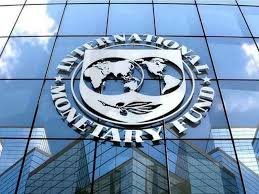By Kadiri Abdulrahman
The International Monetary Fund (IMF) says strong institutions and policies are crucial to economic growth.
The Managing Director of the IMF, Kristalina Geogrieva, said this on Monday in Washington while interacting with Civil Society Organisations (CSOs) on the sidelines of the 2025 Annual Meetings of the IMF/World Bank Group.
Geogrieva said that independence of central banks and their supervisors would also be a major focus at the meetings.
“You will hear us during these meetings talk a lot about the precious value of strong institutions and sound policies.
“You will hear us talking about independence of central banks and supervisors so we can have that strength, resilience coming from this foundation,” she said.
According to her, over the years the IMF has been advocating that a big chunk of economic activity move out of the state hands into private sector hands.
She said that state-owned enterprises in countries where they remain important were now more placed on a competitive footing than before.
“And what we find is that private sector is more agile and adaptable when a shock hits. It is faster to redirect resources to adapt to this shock,” she said.
Geogrieva said that the impact of US tariffs were no longer as dramatic as feared, adding that US tariffs are lower today than they were at the announcement in May.
She described trade as a powerful engine of growth, adding that access to finance has remained somewhat better than was expected in April.
“In other words, conditions are better than we feared, they are at the same time worse than we did. Growth is slow. Debt is high and the risks of financial downturn are quite prevalent,” she said.
She said that countries would have to be much more focused on bringing debt levels down, adding that a very high level of debt indicates a crisis.
She said that, although ironically, debt levels in advanced economies and emerging markets were still going up, in low-income countries, debt levels were going down.
“But they are going down because they have no access to finance. And even if they are going down, it is still incredibly difficult for low-income countries to cope with these levels of debt.
“That concentration of policies to bring debt down, for us, is going to be very, very present.
“We have come up to the Global Sovereign Debt Roundtable with the rulebook for debt restructuring.
“We are working quite intensively with the World Bank on the so-called three-pillar approach for countries that may not have unsustainable debt but have very severe liquidity problems.
“We are looking more into how to deploy the fund, our good offices, to help debtors and creditors to identify pathways for resolving debt differences,” she said.
She said that the annual meetings would focus on credible assessment of the actual debt situation, and then get path forward.
Geogrieva said that there would also be continuous engagements with the G20.
According to her, the G20 Common Framework has made progress in how it is moving, and they want this to be high on the attention span.
“Countries can only grow out of debt, and the attention on growth and how to create better conditions for economies will be a major focus of the IMF and the World Bank.
“The focus is to create jobs for people, to create opportunities for growth. This is very important both for us and the World Bank. We have created at the fund an external advisory panel.
“It is on entrepreneurship and growth. So, every quarter we sit with people from outside to think through how we can do better to help our countries get their economies to grow.
“A very big focus in this growth conversation is on young people,” she said. (NAN)(www.nannews.ng)
Edited by Deji Abdulwahab












